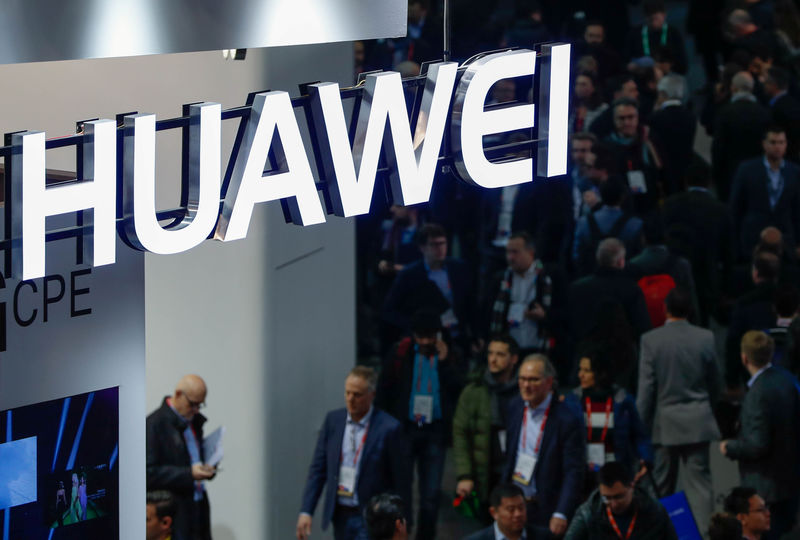By David Shepardson
WASHINGTON (Reuters) - Federal Communications Commission Chairman Ajit Pai on Monday said he was proposing new rules to bar the use of funds from a government program to purchase equipment or services from companies that pose a security threat to U.S. communications networks.
Pai's statement did not disclose what companies or countries prompted the proposal. But on Friday, Pai said in a letter to Congress that he shared the concerns of U.S. lawmakers about espionage threats from Chinese smartphone maker Huawei Technologies Co.
Pai said Monday that "hidden ‘back doors’ to our networks in routers, switches — and virtually any other type of telecommunications equipment - can provide an avenue for hostile governments to inject viruses, launch denial-of-service attacks, steal data, and more."
The FCC will hold an initial vote on the proposal on April 17. It would bar carriers from getting government subsidies in purchasing equipment to provide service in four programs, including providing service in some rural or hard-to-reach areas, service to libraries and schools and a program that helps low income consumers get phone service.
The proposal asks how the FCC should define companies that would be covered the prohibition and how to enforce the rules.
The proposal would bar the spending of funds from the $8.5 billion FCC Universal Service Fund on companies or countries described as posing a "national security threat to the integrity of communications networks or their supply chains."
USTelecom, an industry trade group representing companies including Verizon Communications Inc (N:VZ), Oracle Corp (N:ORCL) and CenturyLink Inc (N:CTL), said its members "will continue working with the FCC and other agencies to address supply chain vulnerability issues."
The Telecommunications Industry Association, which represents Qualcomm Inc (O:QCOM), Cisco Systems Inc (O:CSCO) and others, said it "strongly support efforts by the government to address concerns regarding certain communications equipment providers deemed to pose a heightened security risk."
Pai's proposal follows the introduction of legislation by Republican Senators Tom Cotton and Marco Rubio in February that would block the U.S. government from buying or leasing telecoms equipment from Huawei, the world's third largest smartphone maker, or Chinese telecommunications equipment maker ZTE Corp (SZ:000063), citing concerns the companies would use their access to spy on U.S. officials.
Chinese firms have come under greater scrutiny in the United States in recent years over fears they may be conduits for spying, something they have consistently denied.
Huawei declined to comment Friday.
In January, Huawei's planned deal with U.S. carrier AT&T Inc (N:T) to sell its smartphones in the United States collapsed at the 11th hour. AT&T was pressured to drop the deal after lawmakers sent a letter to Pai citing concerns about Huawei’s plans to launch U.S. consumer products.
In February, Republican Senator Richard Burr, chairman of the Senate Intelligence Committee, said at a hearing that he worried about the spread in the United States of “counterintelligence and information security risks that come prepackaged with the goods and services of certain overseas vendors."
"The focus of my concern today is China," Burr added, "and specifically Chinese telecoms like Huawei and ZTE Corp, that are widely understood to have extraordinary ties to the Chinese government."In 2012, Huawei and ZTE were the subject of a U.S. investigation into whether their equipment provided an opportunity for foreign espionage and threatened critical U.S. infrastructure - something they have consistently denied.
Congress in 2017 banned U.S. government agencies from using security software from Moscow-based Kaspersky Lab. It came amid mounting concern among U.S. officials that the software could enable Russian espionage and threaten national security.
Last week Reuters reported Best Buy Co Inc (NYSE:BBY), the largest U.S. consumer electronics retailer, will stop selling Huawei’s devices over the next few weeks.

Verizon also ended its plans to sell Huawei phones last year, according to media reports.